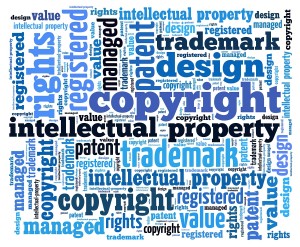Apple Inc. (NASDAQ:AAPL) has filed to secure a trademark for the iPad’s likeness in China as of Friday according to Patently Apple, opening yet another front in the worldwide patent war.
The new trademark case, which Apple (AAPL) has high hopes to win, might go well even though China is a notoriously difficult country to protect intellectual property rights in, thanks to a decision that secured a trademark for the iPad last year against Proview, a Chinese electronics firm. CNET’s Josh Lowensohn describes the battle over rights to the name “iPad” as “short but intense” even though the two companies agreed to settle to the tune of $60 million. The battle started when Apple acquired the iPad trademark through its U.K. subsidiary and Proview levied charges of fraud it found implicit in the deal.
The filing may still leave room for some copycat devices as Apple Inc. (AAPL) hopes to secure the likeness of the iPad as portrayed in both black and white photos. Pictures only show a simple shot of the iPad’s front side and meaningful icons, meaning the back and the sides might still be fair game.

But these may not be the only reasons Apple (AAPL) has chosen to levy a suit at this time. Even though the firm doesn’t always win every suit it files, it often manages to tie up sales the competition hopes to make with injunctions for the duration of the battle. Several patent attorneys interviewed by MacNewsWorld note that injunctions can be well worth their price tag in the end.
Patent and Trademark Attorney Michael Feigin notes that this is standard procedure for tech firms. “The real thing here isn’t that they’re planning to win major damages. Both the companies are loaded, so neither is going to do the other real harm with infringement damages. What they really care about more is sales and market share, and getting an injunction in.” Though the window an injunction can last is short—sometimes it’s only six months—that period of missed sales can end up costing the rival company more than they’ll win in damages. Bad media perceptions and court costs don’t tip the scale against the practice either.
Even if it isn’t part of the overall endgame strategy, a win might be part what Apple Inc. (AAPL) needs to assure investors and consumers that Google and Microsoft products can’t replace their own. The firm lost another battle in the patent war this week to Samsung in Dutch markets on Wednesday, when it was found that the Samsung Galaxy didn’t not effectively copy an iPhone design by using rounded corners.





